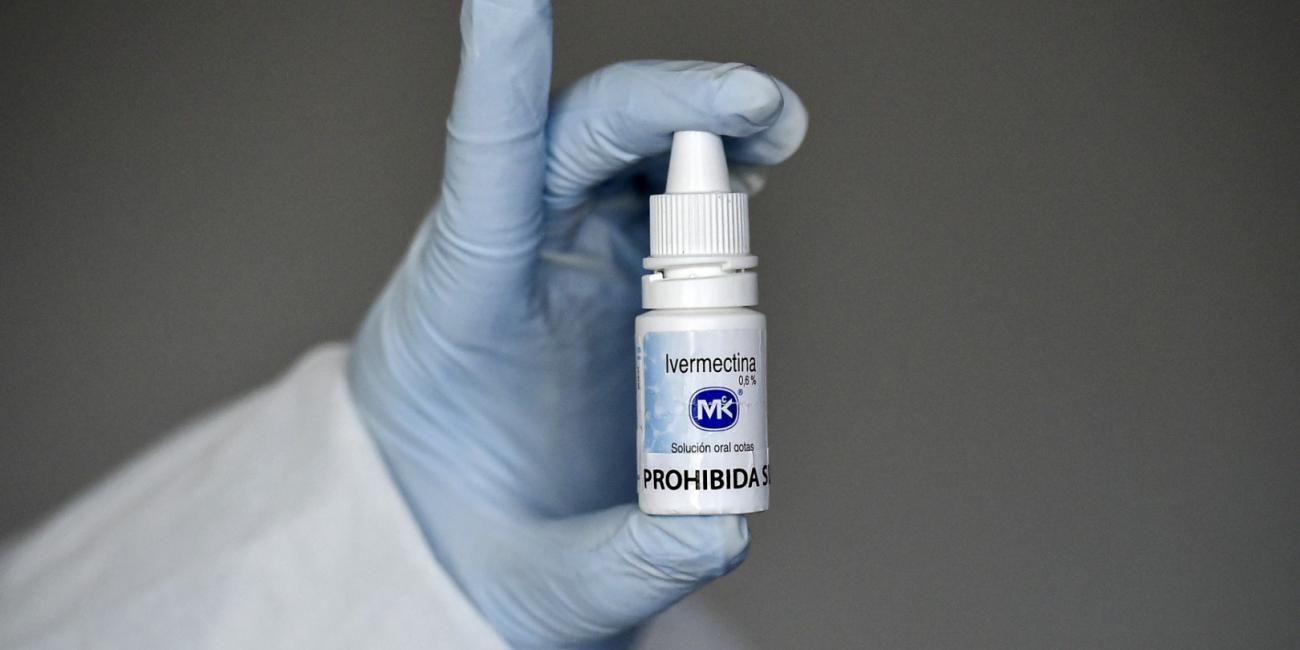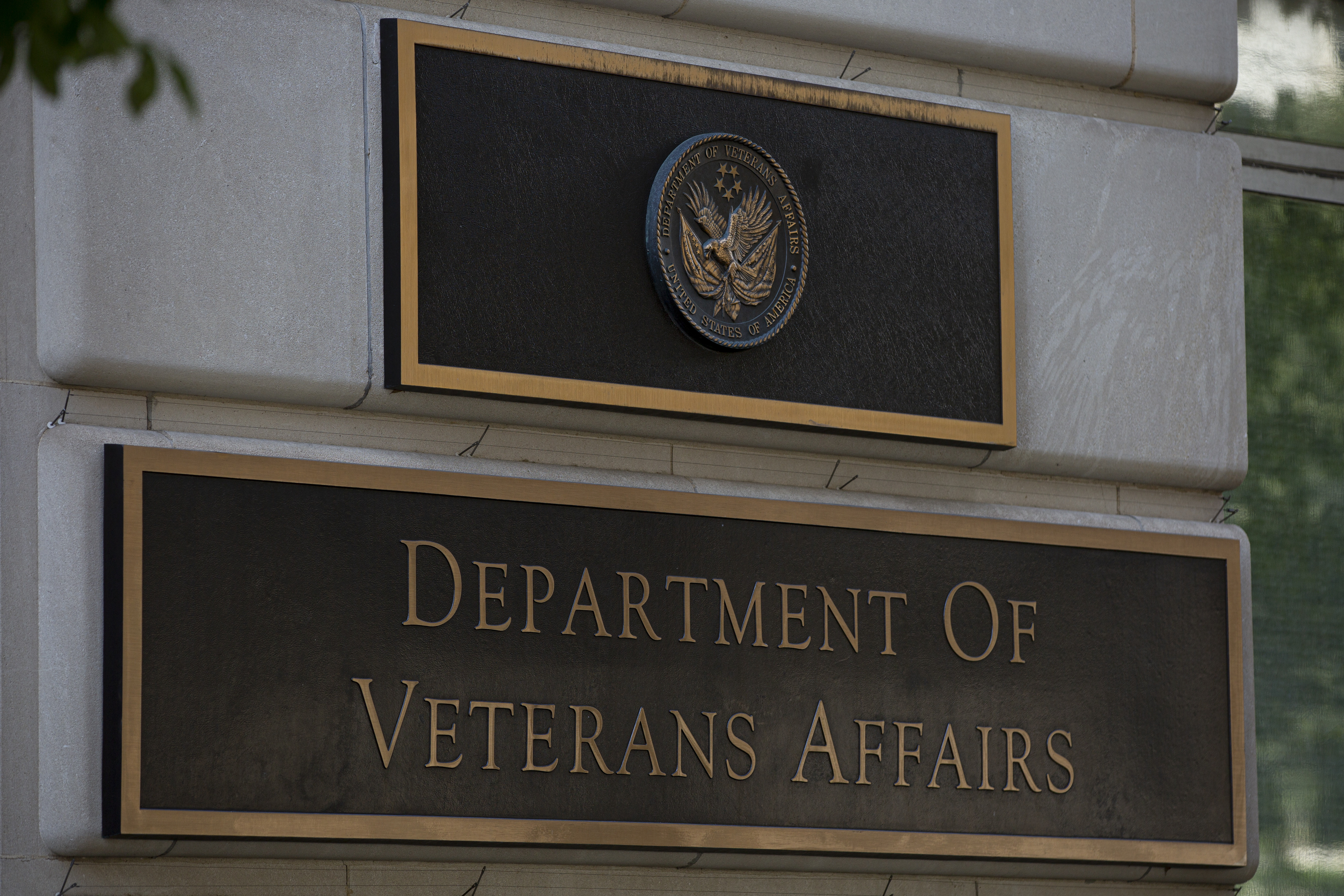
Misleading COVID-19 flyer falsely linked to US Veterans Affairs hospital
- This article is more than five years old.
- Published on March 23, 2020 at 21:38
- 2 min read
- By Marisha GOLDHAMER, AFP USA
Important announcement - coronavirus,” begins a message that AFP was first alerted to by a reader who received it via Facebook messenger on March 17, 2020. The notice, which was also shared publicly on Facebook here, here, here and here, goes on to make unfounded claims about the resilience of the novel coronavirus. It also offers misleading information about COVID-19 symptoms.
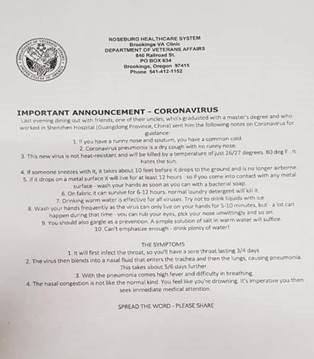
Screenshot of a flyer shared by Facebook Messenger taken on March 20, 2020
Several of the Facebook posts unequivocally show that those who shared the COVID-19 information mistakenly believed the flyer and the guidance it contained was genuine.
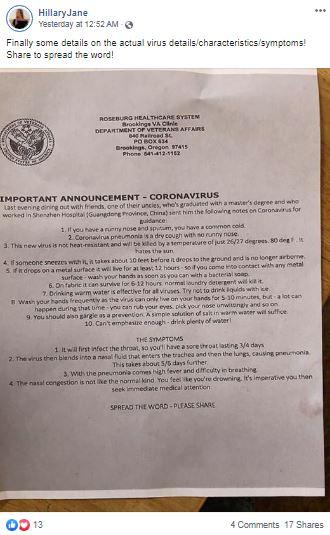
Screenshot of a Facebook post taken on March 23, 2020
“This is not official Roseburg VA Health Care System, Veterans Health Administration, Department of Veterans Affairs or Centers for Disease Control and Prevention (CDC) guidance,” Tim Parish, Public Affairs Officer for the Roseburg VA Health Care System, told AFP by email.
The Oregon VA hospital system also used its official Facebook page to warn against sharing the document:
Genuine updates from the Department of Veterans Affairs regarding COVID-19 can be found here.
Parish also said: “Clinical staff are available to provide 24/7 virtual care and support, including nurse advice and triage. This service is available at no cost to Veterans enrolled for VA health care.”
AFP Fact Check had previously identified the same misleading coronavirus advice being falsely attributed to Stanford Health Care and the UN’s Children’s agency (UNICEF).
Experts caution that too little peer reviewed research has been carried out on the novel coronavirus to make the specific claims being shared.
For example, the misleading message claims the novel coronavirus dies at temperatures above 26/27 degrees, but the CDC states on its information page: “It is not yet known whether weather and temperature impact the spread of COVID-19.”
The World Health Organization also said: “From the evidence so far, the COVID-19 virus can be transmitted in ALL AREAS, including areas with hot and humid weather.”
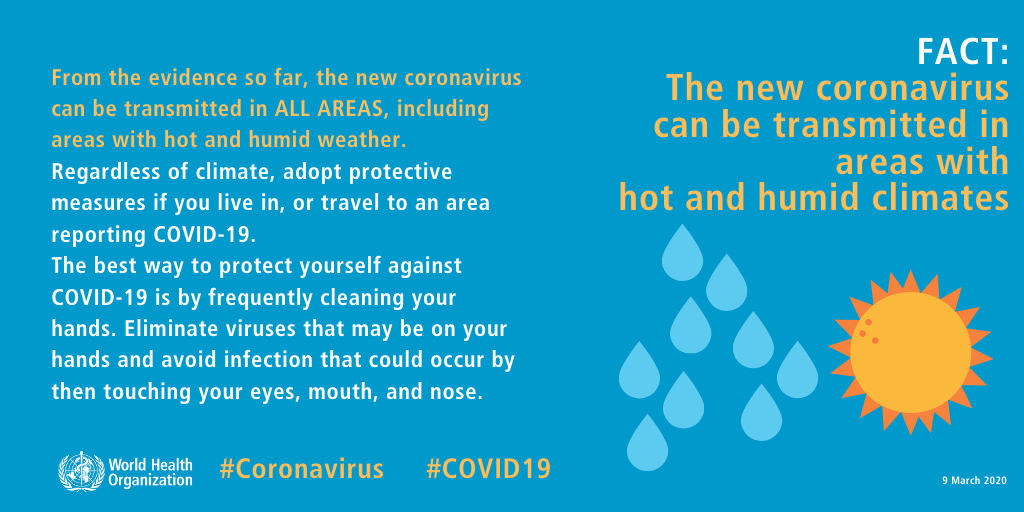
Graphic explaining that COVID-19 virus can be transmitted in areas with hot and humid climates (World Health Organization)
The COVID-19 flyer also makes false claims about the resilience of the novel coronavirus on different surfaces.
A US government funded study was published on March 17, 2020 in the New England Journal of Medicine. AFP reported that the new coronavirus was detectable for up to two to three days on plastic and stainless steel, and for up to 24 hours on cardboard.
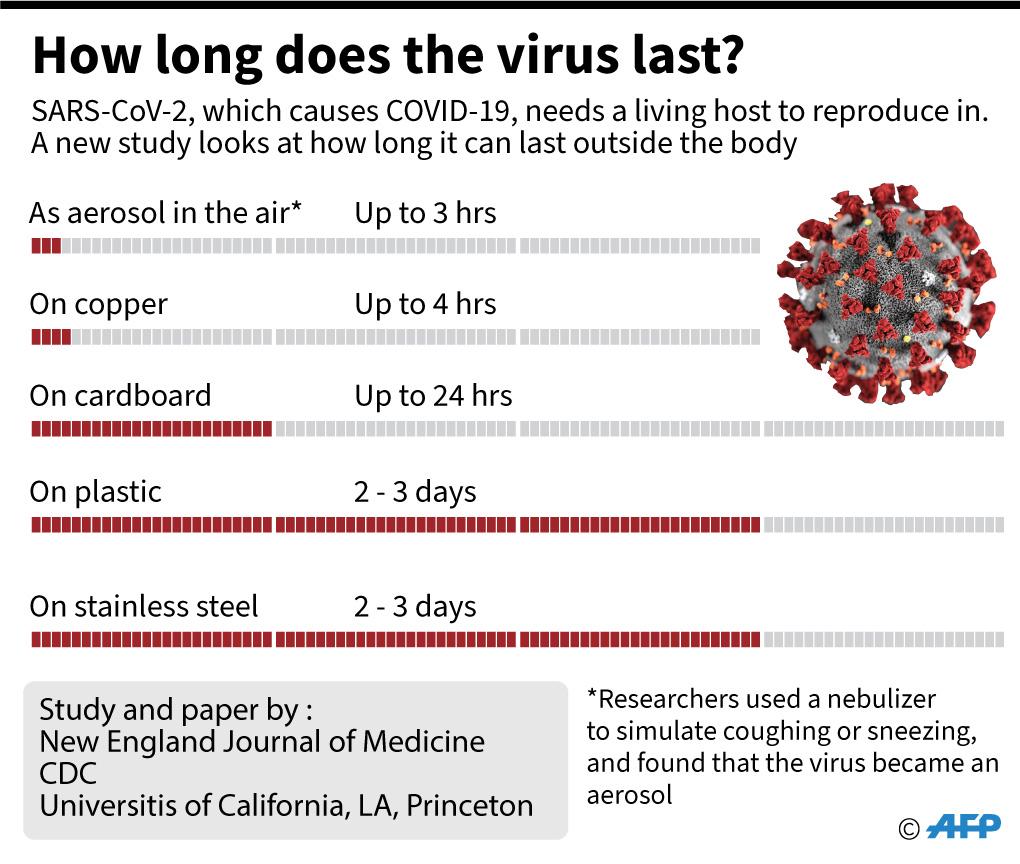
Graphic on a new study that looks at how long the SARS-COV-2 virus, which causes COVID-19, lasts outside of the human body (AFP / John Saeki)
AFP Fact Check is focused on combating misinformation about COVID-19. A roundup of our work in this area can be found here.
Copyright © AFP 2017-2026. Any commercial use of this content requires a subscription. Click here to find out more.
Is there content that you would like AFP to fact-check? Get in touch.
Contact us



